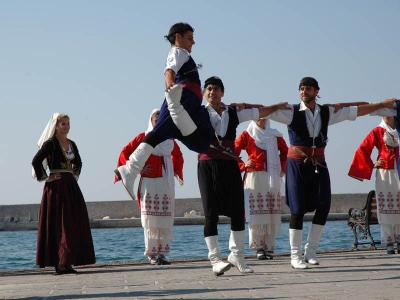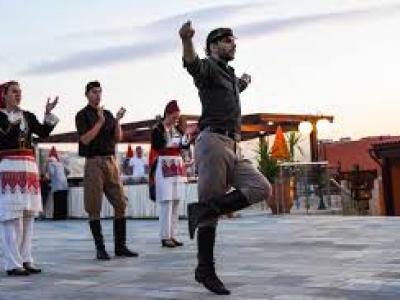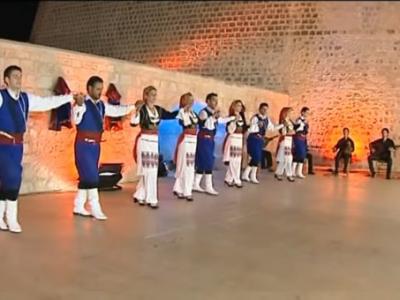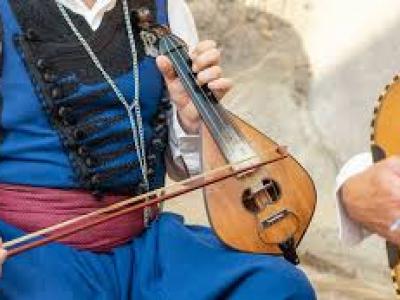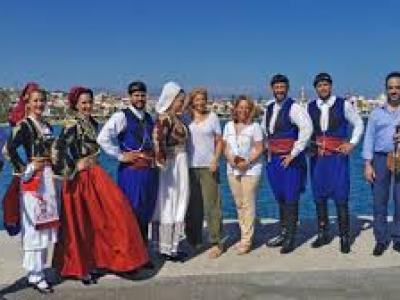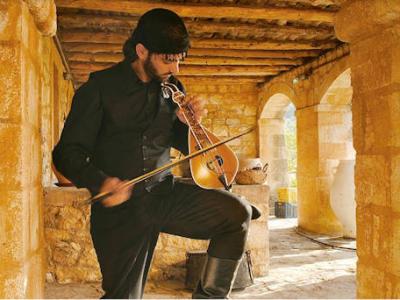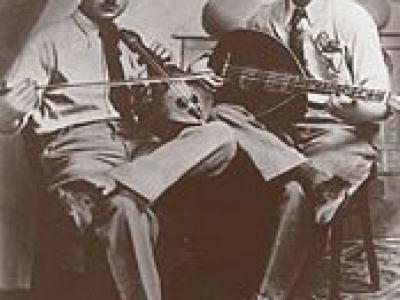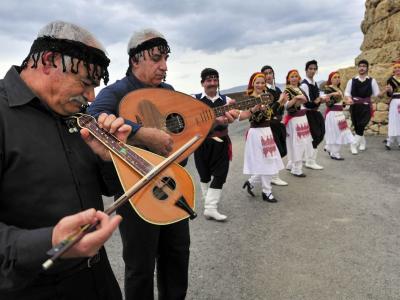Cretan Music & Dance
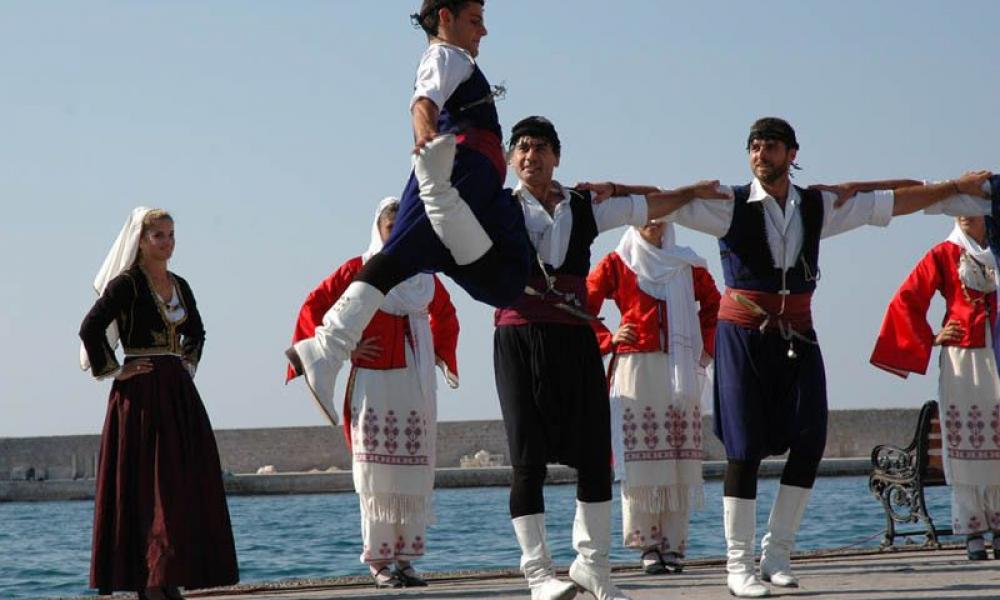
Cretan Musicians
A music unique to these colourful, artistic, and yet rugged people. Cretan music harnesses a sound that we can call ancient Greek in style, utilising what is known as atonal music.
There are influences of Byzantine music, both in the lamenting singing or in the haunting use of drone notes in the instrumentation; giving an eerie, mysterious element. Homer has commented on the beauty and depth of Cretan music and acrobatic dance. At the root of Cretan music lies the Rizitika, or Root songs, which are simple songs, often performed with basic accompaniment, normally a single instrument. These are slow in tempo and introspective, covering themes of love, loss or liberation. They are believed to have come to life as far back as Byzantine times, though definitely existed during Venetian and Ottoman domination of the island. undamentally rebel songs, sung by the Cretan Adartes, fighting to liberate Crete from foreign rule. The Rizitika are now only commonly performed in the mountain villages and in Chania nomos.
Cretan Music and Dance - Dancing at a Cretan wedding
The Rizitika then evolved into the joyful Horeftika, or dance songs. These are faster and far more dynamic songs, covering happier themes; the magic of new love, love of family, or the ever-burning love of the patrida. These are what most will identify with when thinking of Cretan music and dance. Of these Horeftika there are the Sirto, the Malavisiotiko, Pentozalis, Siganos, Sousta etc, all of which have their own dance with its unique steps, timing and accentuation. Performed by larger groups consisting of one or two Lyra players, one or more Laouto players, and occasionally percussion. Singers tend to be male, but not exclusively. The key instruments of Cretan music, giving their unique voices and rhythms, are the lyra and laouto. The Cretans are natural poets, from the sheep-herders high in the thyme-scented mountains, to the old men playing tavli or cards in the smoky kafenia. They sing or speak profound and witty mantinades, which are poems of one or two stanzas. These form the soul of Cretan music.
Cretan Music and Dance
Cretans relish nothing more than a duel of mantinades, where two or more people take turns in composing and reciting improvised poems that often include cheeky remarks about their adversary in verse. The poetic duel will only come to its end when one of the duellists comes to the absolute zenith in their theme, their adversary breaks out in laughter at the wit of their competitors remarks, or the crowd erupts in applause at this last mantinada.
As musicians ourselves, we value the alchemical process of learning the practical and theoretical tools of music. In time you are able to connect with an instrument to the point where it becomes your voice, and where you can create stirring, powerful and touching music.
Cretan traditional music - lyra player
From the legacy that quality musicians such as Moundakis (lyra) and Juan Martin (flamenco guitar), to name a few, who have turned their attention to teaching their respective instruments, we respect and admire this teacher/student relationship. A great place to see Cretan music and dance to Kritiki Musiki is Kafe Kriti in Chania. Dedicated to keeping traditional music alive, the wall is decorated with Cretan instruments, and locals come to share their authentic art with visitors, who go crazy when they learn a few steps of the entrancing dances, and you can't get 'em to sit down! Over a jug of wine, great conversations and wonderful stirring music, new friendships are made, and old ones celebrated. As much a modern temple to the art of Cretan music, it is a must for music lovers, or just life-lovers. This is a wonderful modern home of Cretan music and dance. Below is a video of Themis and Giannis Lagoudakis playing traditional Cretan music.
Τhe above article is a copy of the page:
https://www.we-love-crete.com/Cretan-Music-and-Dance.html
